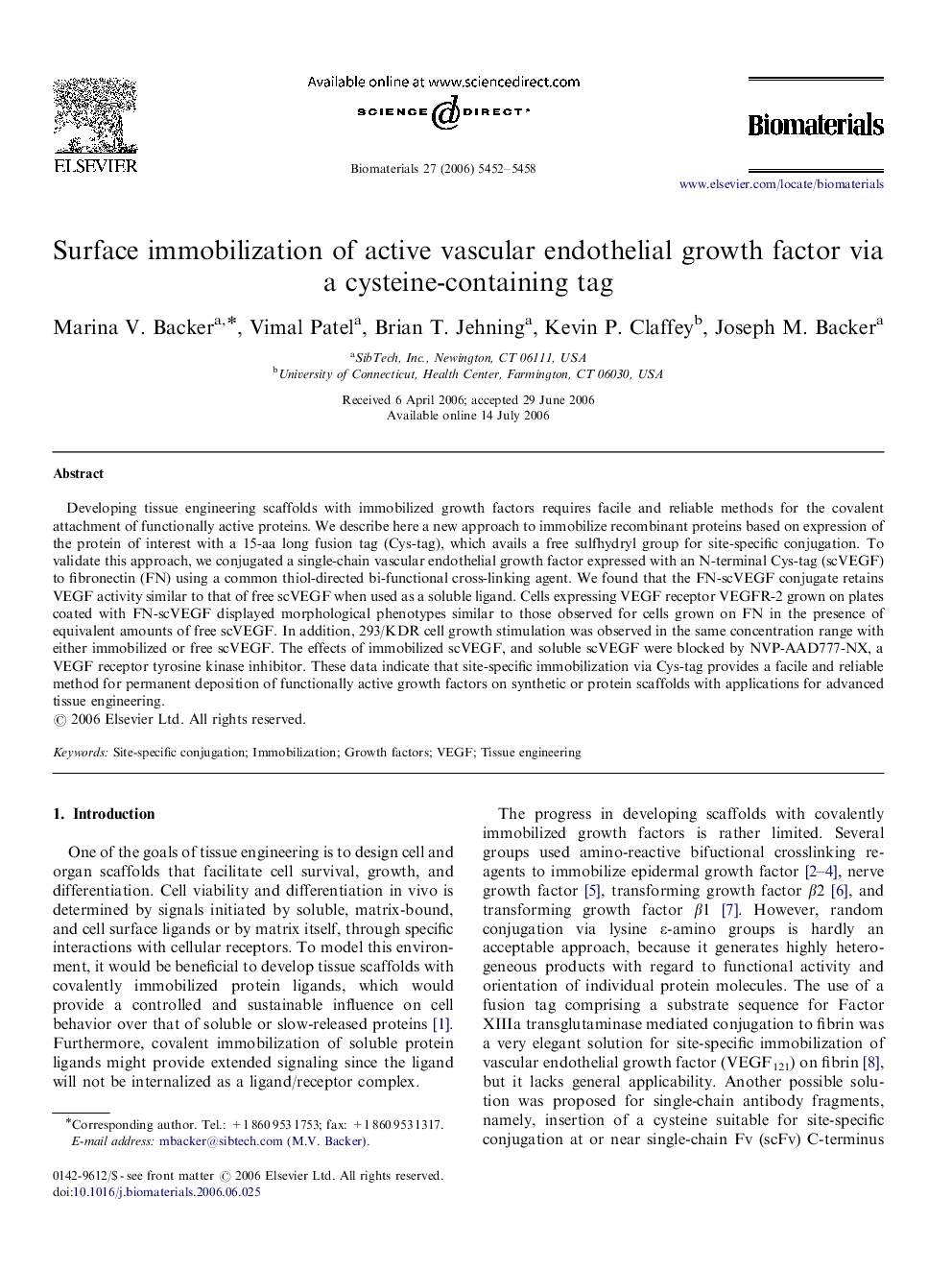| Article ID | Journal | Published Year | Pages | File Type |
|---|---|---|---|---|
| 11338 | Biomaterials | 2006 | 7 Pages |
Developing tissue engineering scaffolds with immobilized growth factors requires facile and reliable methods for the covalent attachment of functionally active proteins. We describe here a new approach to immobilize recombinant proteins based on expression of the protein of interest with a 15-aa long fusion tag (Cys-tag), which avails a free sulfhydryl group for site-specific conjugation. To validate this approach, we conjugated a single-chain vascular endothelial growth factor expressed with an N-terminal Cys-tag (scVEGF) to fibronectin (FN) using a common thiol-directed bi-functional cross-linking agent. We found that the FN-scVEGF conjugate retains VEGF activity similar to that of free scVEGF when used as a soluble ligand. Cells expressing VEGF receptor VEGFR-2 grown on plates coated with FN-scVEGF displayed morphological phenotypes similar to those observed for cells grown on FN in the presence of equivalent amounts of free scVEGF. In addition, 293/KDR cell growth stimulation was observed in the same concentration range with either immobilized or free scVEGF. The effects of immobilized scVEGF, and soluble scVEGF were blocked by NVP-AAD777-NX, a VEGF receptor tyrosine kinase inhibitor. These data indicate that site-specific immobilization via Cys-tag provides a facile and reliable method for permanent deposition of functionally active growth factors on synthetic or protein scaffolds with applications for advanced tissue engineering.
